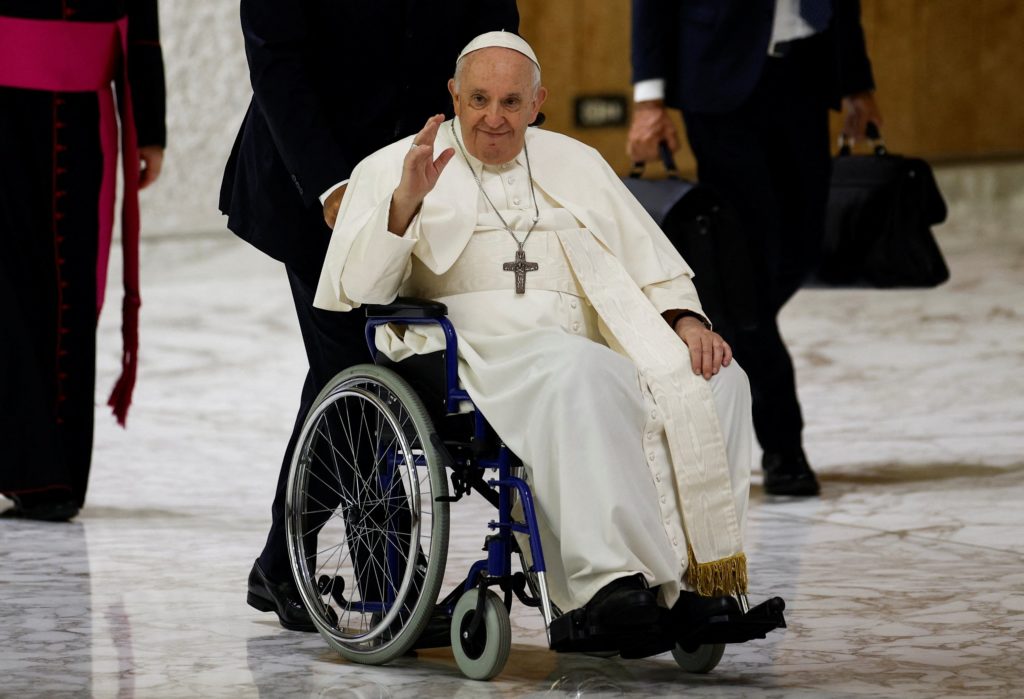Elderly men and women are called to pass on their wisdom and shine a path toward a better tomorrow for future generations, Pope Francis said.
As one approaches the final leg of their mortal journey, little details, such as "a caress, a smile, a gesture, an appreciated effort, an unexpected surprise, a hospitable cheerfulness, a faithful bond become more acute," and what is most essential in life "becomes definitively clear to us," the pope said Aug. 24 during his weekly general audience.
"This wisdom of old age is the place of our gestation, which illuminates the lives of children, of young people, of adults, of the entire community. We, the elderly should be this for others; a light for others," he said.
In his catechesis, the final in a series of talks on old age, the pope reflected on the recent feast of the Assumption, which he said served as a reminder that "the destination is heaven."
For Christians, he explained, death is "a little like a second birth."
"If the first was a birth on earth, this second is a birth in heaven," the pope said. "Just as, in the moment we come out of our mother's womb, we are still ourselves, the same human being that was in the womb, so, after death, we are born to heaven, to God's space, and we are still ourselves, who walked on this earth."
Jesus' resurrection from the dead, the pope continued, and his subsequent appearance to his disciples are a source of hope that allows Christians to see death not as an end, but as "a kind of step toward the encounter with Jesus, who is waiting for me to bring me to (God)."
"The Risen One lives in God's world, where there is a place for everyone, where a new earth is being formed, and the heavenly city, man's final dwelling place, is being built," he said.
A life lived according to the Gospel, he added, prepares Christians for the passage into eternal life and "puts us in tune with the unprecedented destination of the life we sow."
"Our whole life appears like a seed that will have to be buried so that its flower and its fruit can be born. It will be born, along with everything else in the world. Not without labor pains, not without pain, but it will be born. And the life of the risen body will be a hundred and a thousand times more alive than we have tasted it on this earth," the pope said.
Pope Francis called on all Christians to "hope for this fullness of life that awaits us all," that is not "a bored expectation" but rather "an expectation with eager anticipation."
"Yes, dear brothers and sisters -- especially you elderly -- the best of life is yet to come. 'But we are old, what more is yet to come?' The best, because the best of life is yet to come," the pope said.
Death may cause "a little bit of fear, because I don't know what this passage means, and passing through that door causes a little fear, but there is always the hand of the Lord that carries us forward, and beyond the door there is a feast," he said.

